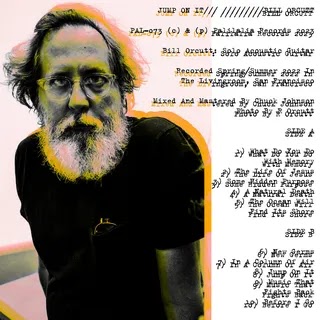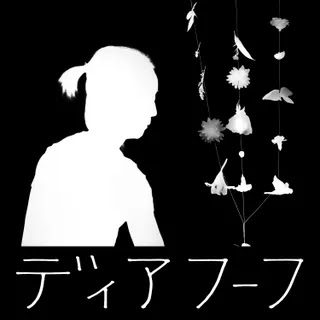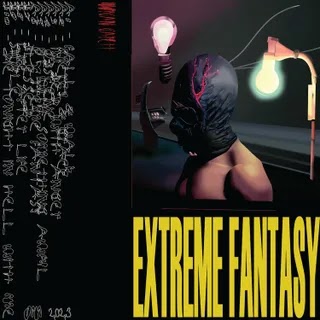Fusing club music’s dynamism with ambient’s tenderness, West Coast producer Tomu DJ’s sophomore album calls to mind classic electronic full-lengths while offering something fresh in the process.
For the past few years, Tomu DJ has been dabbling in alchemy. A devotee of DJ Rashad’s pioneering footwork crew Teklife, the Bay Area producer drew attention to herself with a raft of nimble, amusingly titled heaters that winked at solipsistic playgrounds for the chronically online. It quickly became apparent she was equally skilled at writing gossamer synth melodies that suffuse the air like fragrance and betray no hint of screen glare. Could overlap exist between two forms that are, on paper, miles apart? Half Moon Bay, one of 2022’s most affecting electronic records, offers a resounding yes.
The road connecting juke to new age is rarely trodden, and “ambient footwork”—ludicrously paradoxical, given the Chicago dance style’s invocation to get your ass up and werk—scans like the kind of thing a random microgenre generator spits out. Tested blind, you might never guess that the same pair of hands behind the celestial two-chord sigh of “Sunsets,” a Half Moon Bay teaser released this spring, had also bashed out the hyperactive arcade strains of “banana” some two years prior.
Tomu DJ’s attempts to fuse these two approaches didn’t always gel, though last year’s debut full-length, FEMINISTA, was a fine statement of intent. On her sophomore LP, she cracks the code. Featuring input from footworkers DJ Manny and SUCIA!, as well as regular collaborator kimdollars1 and Tomu DJ’s own partner blessingsnore, Half Moon Bay strikes all the right notes, recalling well-loved contemporary records that manage to be hypnotic, curative, and a touch disquieting all in the same breath.
If you’re curious to hear those early experiments, unfortunately you’re too late. Tomu DJ recently scrubbed her socials and deleted swaths of her catalog off Bandcamp and streaming services—an eyebrow-raising move for a relative newcomer. Half Moon Bay, which she says she revised at least four times over the course of several years, is a purposeful hard reset. A near-fatal car accident in 2019 forced her to reckon with the aftershocks on FEMINISTA, and here she plumbs further depths, working through longstanding, deleterious mental-health issues.
Though the protective barrier of piss-taking is gone—songs named after mispronunciations of Dua Lipa have been replaced by ones that are fairly unambiguous in their quest for creative and spiritual rebirth—Half Moon Bay is far from a drudge, and not even particularly dark. Tomu DJ instead opts to confront roiling trauma with a spear of soft euphoria; pain commuted through snappy drums and bright synths, mixed loud and still raw.
Typically, producer-DJs absconding from the dancefloor will strip out the low end entirely, as if to prove they don’t rely on kick drums as a crutch. The separator on Half Moon Bay is how much Tomu DJ retains. The album’s opening two tracks hover around 130-145 bpm, respectively—very pacy indeed for ostensibly mellow music. Even when tempos decelerate, her downtempo has an uptempo gait. Chatty hi-hats, beat switches, and snare rolls float around like club music’s afterimage, injecting unusual insistency into a field that can sometimes struggle to justify its stasis.
Sour, tensile keys and skittering percussion on “Optimistic” evoke the stampede of a crowd fleeing hail, while the cresting dembow rhythm on “Lost Feeling” is like a flashlight scything through the claggy, toxic air that follows a wildfire. “Spring of Life” plays a cute trick, drifting tones massaging your brain for long enough that you start daydreaming about fronds of giant kelp twisting romantically in turquoise waters, before the pulse quickens as a submerged kick punches in. Although the tempo only leaps to 120 bpm—about par for ambient house—the impact, after being lulled into a false sense of serenity, is arresting.
The heartrending crown jewel is “Half Moon.” As the track is ushered in by a faint click, one hand begins to glide over a Prophet-5, the only non-VST instrument employed across the LP, with a weight and hesitancy that suggests this was a scratch demo deemed richer than the overthought final_final_final version. Initially the mix feels off, notes a little too high and sharp, before a run of crystalline trills washes the song clean, and you realize just how closely you’ve been drawn in. In mood if not sound, it brings to mind Huerco S.’ “Promises of Fertility” and DJ Sprinkles’ “House Music Is a Controllable Desire You Can Own,” respective highlights on exceptional albums that tug insistently at resonant sensations falling just out of language’s grasp.
Half Moon Bay hits like being flash-banged by an emotion grenade. At first the album can seem pretty gutting, the sort of abundantly tender music that makes you want to hop a 3 a.m. Greyhound to nowhere, just to develop a deeper kinship with the sense of ravagement and isolation. But the residual effect is purifying. Half Moon Bay is a kind of quiet force, grace wrested from tumult, yet something greater still: Tomu DJ sounds like she’s happy to be here, and that’s half the battle won.
















0 comments:
Post a Comment